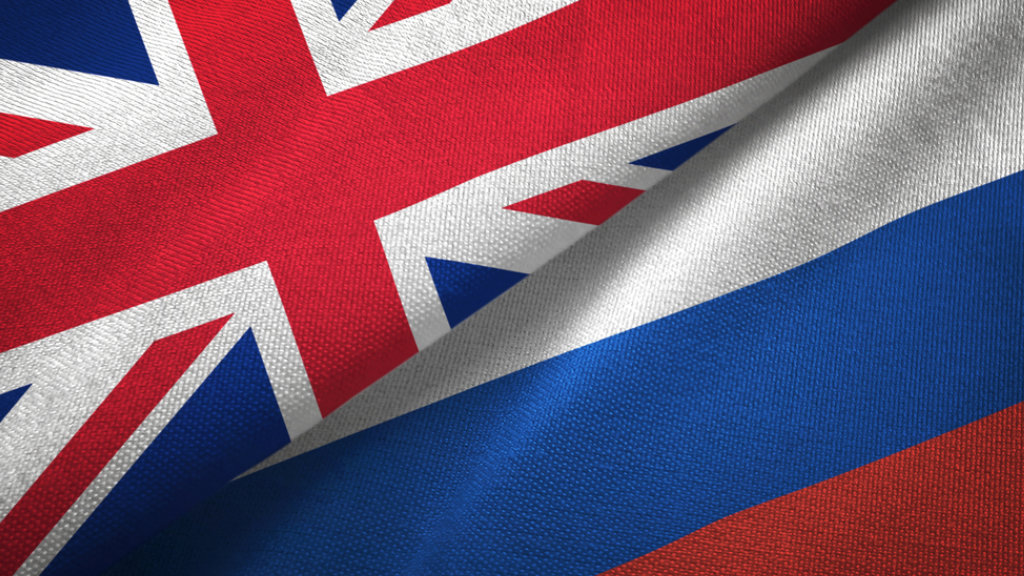The UK held a General election this week with a new socialist Labour party government gaining power for the first time in 14 years. They were also voted into government with a significant majority meaning they will be able to follow their own policies when it comes to governing the UK. But where does this new British government stand on Russia? We briefly examine the positions of the new Prime Minister, Kier Starmer, and the senior members of his cabinet, based upon their previous experience and statements made.
Sir Kier Starmer – Prime Minister
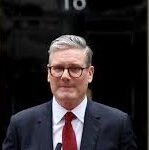
Starmer has been generally quiet about Russia, although in a call yesterday to US President Biden he stressed that the UK remained supportive of Ukraine. However as regards the UK’s energy policy he has said that the UK is tied too much to ‘overseas sources’ and he would rebuild a British-owned and controlled energy sector. This will almost certainly mean continued Russian gas purchases in the interim period, although attention to this will be deflected – as has the EU’s increase of Russian gas purchases in Q1 2024, a trend that is continuing and is now at record levels. However, Russia has black-listed the new UK Prime Minister from visiting Russia in August 2022 for previous ‘anti-Russian’ sentiments. He is strongly pro-NATO. Starmer’s position with Russia is unlikely to see much change from the overall British establishment’s position – although he will want to be seen as ‘involved’ to take political credit should any opportunity for Russia-Ukraine negotiations arise.
Angela Rayner – Deputy Prime Minister & Secretary of State

Further left-wing than Starmer, she has been critical of businesses who have remained operational in Russia. She once claimed, incorrectly, that Russia had ‘deployed nuclear weapons in the UK’. Rayne has a fierce reputation for following publicly diverse trends, is pro-migrant, has described the Russian President as ‘despicable’, yet is close to former Labour Party leader Jeremy Corbyn, who is more sympathetic to Moscow. Rayner favours the UK dismantling its nuclear weapons deterrent yet is unlikely to action this viewpoint. She is also unlikely to favour improved relations with Moscow and is something of a loose cannon.
Rachel Reeves – Chancellor of the Exchequer

Has applauded the suspension of Labour politicians who have spoken out questioning British policy and statements about Russia. She is a former Bank of England economist and a believer in the ‘Bideconomics’ policy of borrowing money to stimulate growth. She is likely to remain tough on Russian sanctions and financial restrictions upon Russia.
David Lammy – Foreign Secretary
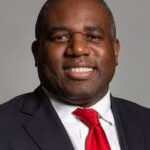
Has responsibility for improving relations with Europe and the ‘Global South’ which are likely to see him compete against Russia’s Foreign Minister Sergey Lavrov. Is supportive of Ukraine joining NATO. In recent meetings in Kiev, Lammy stated that Vladimir Putin represented a “new fascism in Europe”. Nonetheless, his attempts to persuade the global south to favour the UK over Russia will be interesting to observe. For example, the UK now accounts for just 2.6% of Africa’s exports and has halved its purchases of African goods over the past decade. In contrast, Russian purchases of African goods have increased over 150% since 2013.
Jonathan Reynolds – Business and Trade Secretary

Mandated to improve relations with the European Union. Is unlikely to change any policies as regards the UK’s trade with Russia. Has a somewhat erratic position on Moscow, one hand hand appearing pro-Ukraine, on the other criticizing Boris Johnson, the ex-British Prime Minister, for not meeting with the Russian President in 2021. Is unlikely to have any impact on Russian trade.
Yvette Cooper – Home Secretary
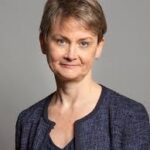
Is responsible for domestic UK security issues, with her main agenda to focus on asylum seekers and migrants. May push to send some Ukrainian refugees back home. Appears unlikely to change any UK security or visa policies as concerns Russian nationals.
Summary
The new British government obtained a large majority, although like most of Europe, actual voter turnout was low at about 20% of the eligible total. This means that the country is being run by a government that 80% of the British population did not endorse.
As in Europe, this leads to a collision between Government thought and media perspective, and leads to inconsistent approaches between government policy and national media coverage. At present, the two are reasonably aligned, yet this could change if the Government becomes unpopular – although it is democratically protected via its huge majority voting power.
But in essence, the new UK government appears to offer much of the same in terms of British Foreign policy as concerns Moscow. To be frank, its mostly dead.
Total direct trade in goods and services between the UK and Russia was £2.1 billion (US$2.69 billion) in the 2023, a decrease of 74.9% from 2022. Bilateral trade declined a further 16.1% in the first four months of 2024. It should be noted however that British consumer goods still access the Russian market via third party importers. The British themed ‘Black Chops’ pub in St.Petersburg is illustrative.
The only bright point to note is how the British Foreign Minister and Trade Secretary manage to perform when bumping up against Russia’s Foreign Minister and trade development personnel when seeking to persuade countries of the Global South that the United Kingdom is a preferable partner. Otherwise – the UK election is unlikely to change anything in terms of its impact upon the UK’s Russian policy.
Further Reading
Russia’s 2024 Pivot To Asia
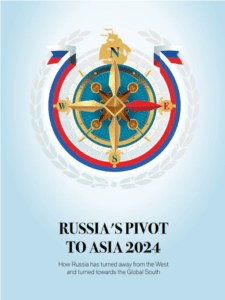
Russia’s 2024 Pivot To Asia is a significant, independent overview of Russia’s trade with the global south and contains extensive trade and development data concerning Russia’s engagement throughout Asia, Africa, the Middle East, and Latin America. It is a complimentary download and may be accessed in English here and in Russian here.

 Русский
Русский








